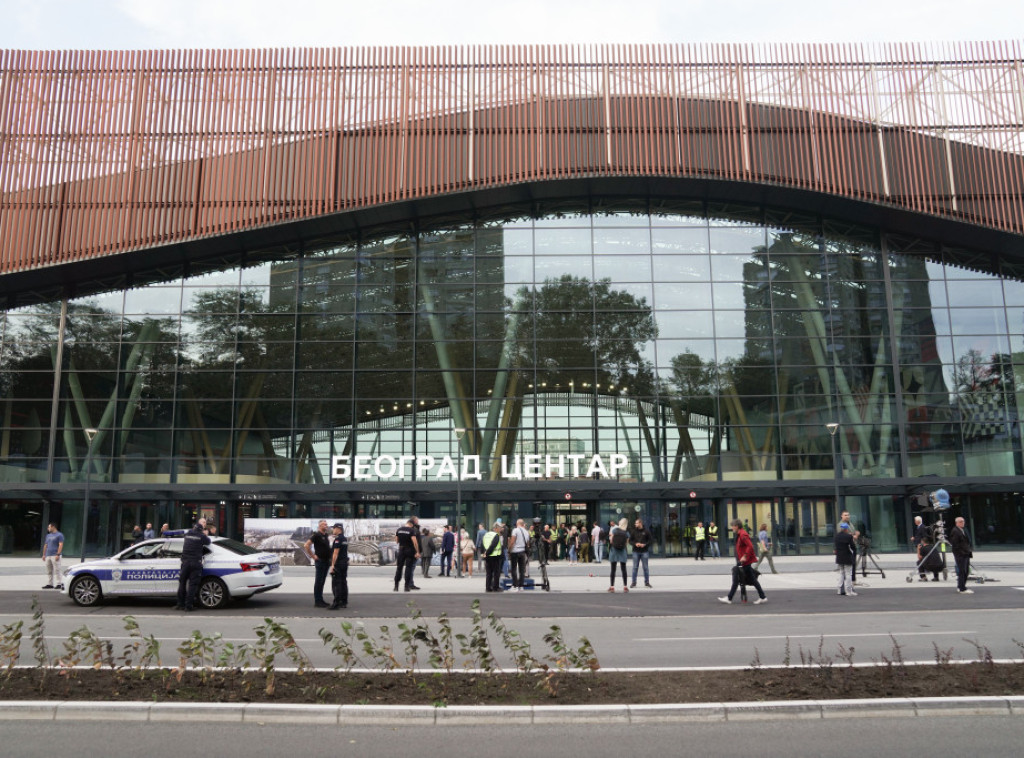Kućni pritvor zvaničnicama Gradske uprave Novog Sada zbog zloupotreba sužbenog položaja
1. mart 22:43
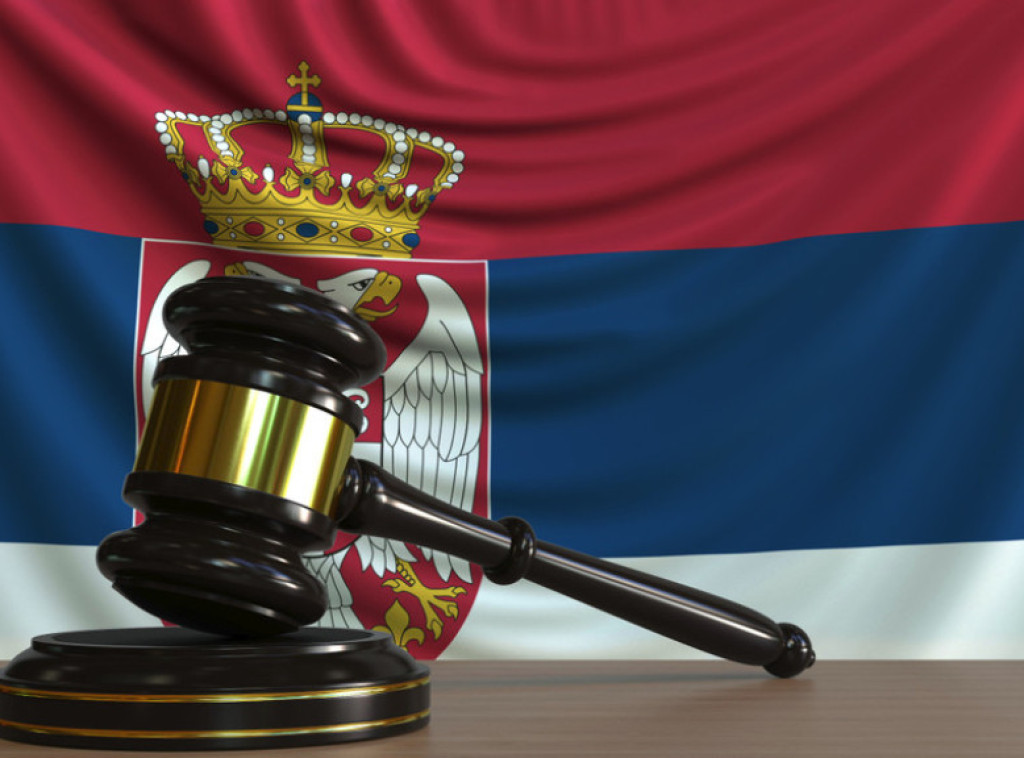
23. oktobar 2023 11:35
podeli vest
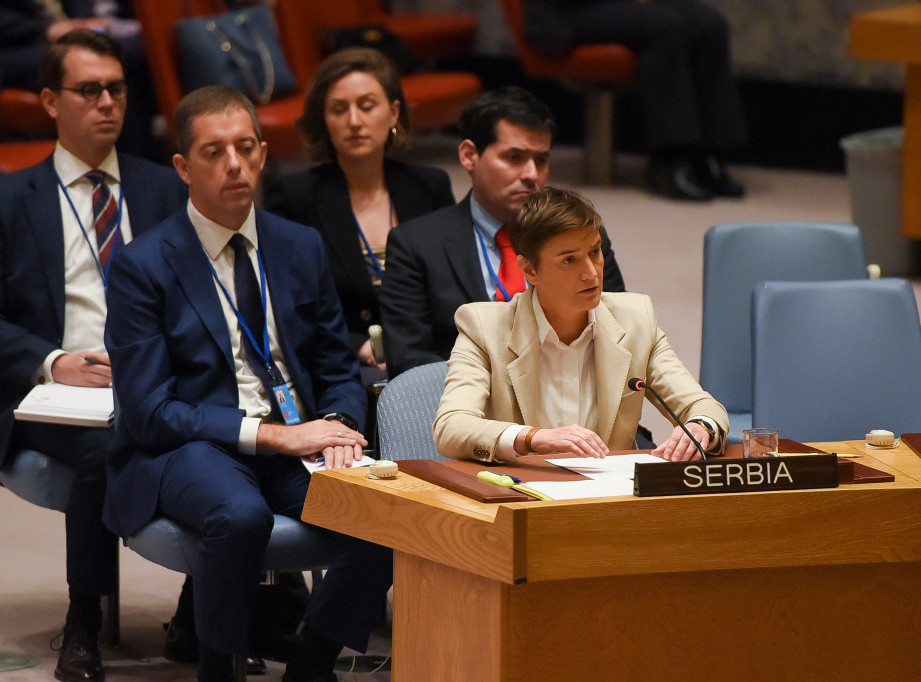
Foto: TANJUG/VLADA REPUBLIKE SRBIJE/PEĐA VUČKOVIĆ
NEW YORK - Serbian PM Ana Brnabic said in the UN Security Council on Monday evening the interim authorities in Pristina were carrying out a campaign of systematic violence and denial of the fundamental rights of Serbs in Kosovo and Metohija.
"What we see in Kosovo and Metohija today is comprehensive political, legal, institutional and physical violence against Serbs," Brnabic told a UN SC session on the latest report on UNMIK, the UN Mission in Kosovo and Metohija.
"We have been continuously and repeatedly expressing concerns about the dangers that may arise from Pristina’s refusal to fulfil the obligations undertaken in the dialogue with Belgrade, facilitated by the EU. The current situation on the ground is an inevitable consequence of a series of more than a dozen unilateral actions by Pristina," she said.
Brnabic also noted the necessity of establishing a Community of Serb Municipalities and holding new elections in the north of Kosovo and Metohija as soon as possible as part of efforts towards de-escalation.
"As always, I would like to emphasise the importance of regular and objective reporting on the situation in Kosovo and Metohija, an autonomous province of the Republic of Serbia, in line with the constitution of the Republic of Serbia but also with the UN Charter, UNSC 1244 and the basic principles of international law," Brnabic said.
"The situation in the last two years, especially in the last twelve months, became so grave that we all need to try and understand not as politicians but, first and foremost, as human beings, what is happening and where to go from here in order to provide at least a glimpse of hope to those in Kosovo and Metohija who suffer every day, at least a glimpse of hope that stability and long-term peace is, in fact, possible.
From what we can all see on the ground based on numerous examples in the past twelve months, the officials in Pristina, the administration in Pristina, regrettably, I have to say, to put it in the simplest form, have only three, or three key messages for Serbs, other non-Albanians and the international community, and all that we are seeing in these reports, and all that is happening every day on the ground, can be summed up in these three key messages.
The first message is: those Serbs who left after 1999 or during the ethnic cleansing - the pogrom of 2004 - should not come back and they are not welcome. It is deeply disturbing, it is unfortunate, but it is also embarrassing that Kosovo and Metohija remains, according to all relevant UN reports, a territory which, compared to all post-conflict territories in this whole crazy world of ours has the least number of returnees - less than 2 per cent of displaced people have returned to Kosovo and Metohija.
Less than two per cent, and this is not by accident. When they go back, if they try to go back, they usually see their property illegally seized by someone. They then, obviously, go to authorities to report usurpation and to ask for assistance, hoping for justice and hoping for fairness. On most occasions, instead of getting assistance, they find themselves arrested and end up in prison. Just in the past few months, to cite a few examples, individuals such as Dusan Arsic from Matica, Pristina, Caslav Jolic and Gavrilo Milosavljevic from Istok and Milorad Djokovic from Vitomirac were all arrested - all of them - on charges of war crimes, although they entered Kosovo and Metohija on multiple occasions and were never arrested or charged with anything whatsoever until such a time when they asked for their private property, their land, their homes to be returned to them.
At that point in time, the charges suddenly emerged only after the legal process of reclaiming usurped property had actually begun. This is a clear message to displaced Serbs from the official Pristina: do not return, you are not welcome. Hence again the humiliating fact: Kosovo and Metohija remains the world champion in the least number of returnees of all of the post-conflict territories across the world.
The second message that is being sent to Serbs in the most brutal ways is this: those who stayed and still live in the territory of Kosovo and Metohija and who want to stay, should leave.
Through months and years of systematic, outright annulment of even the most basic human rights for Serbs and other non-Albanians, turning their lives into a constant nightmare of insecurity caused by total and utter absence of rule of law and marked by arbitrary decision-making on who and when will be arrested, taken into custody, beaten up, tortured, humiliated, kept in prison for unknown periods of time, wondering if your children, brothers, fathers, husbands will be shot at freely, simply because they are Serbs, if your priests will be deported, your property confiscated, if those who shoot at you and those who beat you up will always, as a rule, always be left to walk free, is happening every day in Kosovo and Metohija.
By doing that every day of every week of every month of every year for the past few years, Pristina has managed to generate a dangerous security crisis as we have seen also in the latest UNMIK report. What we see in Kosovo and Metohija today is comprehensive political, legal, institutional and physical violence against Serbs. From a human standpoint, I have to say the absolute turning point when everyone, I think everyone, understood that what Pristina wants is for Serbs to leave wasn’t actually the attempted murder of an 11-year-old boy, Stefan Stojanovic, and his 21-year-old cousin Milos while they were participating in a Christmas procession in Gotovusa near Strpce.
It was actually the day when Azem Kurtaj, who committed this crime, shooting at children at Christmas, a member of the so-called Kosovo Security Forces - which is, by the way, an illegal formation according to Article 15 of UNSCR 1244 - who shot at these children, was let go as a free man," Brnabic said.
"He was granted complete amnesty by the Pristina judiciary. And that is perhaps all that anyone needs to know about the rule of law in Kosovo and Metohija, and all anyone needs to know about the conditions in which Serbs and other non-Albanians live in Kosovo and Metohija today.
When an Albanian, a member of the so-called security forces, shoots and severely wounds a child and is then proclaimed a free man, is this not a call by Pristina for anyone else to shoot at Serbs, terrorise them, wound them, kill them? Why wouldn’t they? There is no consequence of such acts. The amnesty for Kurtaj is basically an open invitation for others to repeat these kind of acts.
On the other hand, interestingly, in that same legal system, according to that kind of a standard of rule of law, which frees the criminal who shoots at children, if you are a Serb, like brothers Andrija and Mihailo Mitic, you get arrested and you get detained, imprisoned for a month for not wearing seat belts. Not wearing seat belts. And you end up in prison for one month if you are a Serb.
Unbelievable, but the sad truth is this: this is what everyday life for Serbs in Kosovo and Metohija looks like today, and unfortunately, we have even more paradoxical examples: Sladjan Trajkovic and Zlatko Arsic were both accused and arrested for alleged war crimes. Surprisingly, they both used to be members of the so-called Kosovo Police, where, in order to get employed, you have to obtain security clearances from Pristina. So they passed security clearances by Pristina and were accepted to the Kosovo Police force and served for years as a part of multi-ethnic policing thanks to the implementation of the Brussels Agreement by Belgrade and Serbs in Kosovo and Metohija, and once they left the police, they were arrested and charged as being war criminals," she said.
"The very simple truth is: in today’s Kosovo, if you are a Serb, you can be arbitrarily arrested, charged and kept in custody for as long as their politicians wish, and that is happening in the presence of Kfor UNMIK and Eulex."
"Since the beginning of this year, six Serbs have been shot at and no one was found criminally responsible. In the past two and a half years, there have been an unbelievable 434 ethnically motivated attacks on Serbs and their property - a 50 per cent increase compared to the period before the administration of Albin Kurti, and we still do not know if anyone was held accountable or if any charges were pressed against any of the perpetrators. As a direct result of this terror, 11 per cent of Serbs have left the north of Kosovo and Metohija since Albin Kurti came to power..., due to the campaign of systematic and widespread violence and deliberate creation of unbearable living conditions for them," Brnabic said.
"The third clear message from Pristina to Serbs but also to the international community is this: agreements reached shall not be implemented. Those agreements, or parts of the agreements that were in fact implemented will be annulled, blocked or dismantled.
...Not a word of the Brussels Agreement as the first agreement on normalisation was implemented by Pristina. This must change, it is high time for the establishment of the Community of Serb Municipalities."
"The Community of Serb Municipalities is an unavoidable element on which the implementation of any further agreement rests upon. But let me state clearly: it needs to be a Community of Serb Municipalities in accordance with signed agreements from 2013 and 2015, not just any organisation bearing that name. The method of forming and adopting the statute of the Community of Serb Municipalities as well as its powers have been clearly defined and cannot be subject to interpretation. The general principles for establishing the Community of Serb Municipalities, its legal framework and a detailed list of its competencies are clearly stated in the agreement signed in 2015.
We all know that in the past two years, Pristina has openly stated on several occasions that it has no interest in the Community of Serb Municipalities. To make things worse, in the past 12 months Pristina has actively been undermining what was achieved through the Brussels Agreement."
"Serbs and other non-Albanians in Kosovo and Metohija are finding it increasingly difficult to access food and medicines. We have a looming humanitarian crisis. Health care institutions in predominantly Serb areas cannot procure basic medical supplies such as oxygen. Medications that are no longer available include chemotherapy drugs, anesthetics, antibiotics, infusion solutions, vaccines, etc. Medications for extremely urgent cases and surgeries for a maximum of two more weeks are still available," Brnabic said.
"The key event from which everything irreversibly began to move towards comprehensive destabilisation were the sham local elections held in April in four municipalities in the north... ...Pristina decided to escalate further, they decided to hold local elections in which only 0.03 per cent of Serbs - who make up more than 95 per cent of the population in northern Kosovo and Metohija - participated," she said.
"Elections were conducted at a reduced number of polling stations, voting took place in special containers, guarded by fully armed militia. Free and fair is not the term anyone would use to describe those elections. Appointees by Pristina - because they cannot be referred to as elected mayors - forcefully entered the municipal offices, accompanied by special units of Kosovo Police armed with long-barrelled guns, which is also a direct violation of the Brussels Agreement.
Protests resulted in injuries to more than 50 unarmed Serbs, injuries were inflicted on Kfor members, which is tragic and unacceptable. On that occasion, three Serbs were hospitalised due to gunshot wounds and four of them were arrested," Brnabic said.
"Since June 3, when the EU demanded immediate de-escalation, Pristina has taken a total of 23 additional escalatory steps in the north of Kosovo and Metohija. A total of 24 Serbs have been arrested since the EU demanded immediate de-escalation," she said.
"The crisis in Kosovo and Metohija has tragically - and predictably - escalated on September 24, when an armed conflict occurred between a group of armed Serbs from Kosovo and Metohija and police and paramilitary formations from Pristina in the village of Banjska and its surroundings.
Investigations are ongoing to provide all of the answers and shed light on all uncertainties regarding this event, including the manner in which two out of three deceased Serbs lost their lives, which appeared to be a cold-blooded execution after they surrendered.
Belgrade and Serbian security forces and Serbia’s security structures had nothing to do with this event and we are prepared to provide all information available today to the international community to confirm this statement," she said.
"The events in Banjska are a logical consequence of the reign of fear and terror that Pristina decided to enforce despite clear demands for de-escalation by the international community, precisely counting on the peaceful resistance of the Serbian people in northern Kosovo and Metohija becoming something more," she said.
What we are witnessing is a "campaign of silent ethnic cleansing, a campaign of systematic and widespread violence against Serbs," she said.
"Deliberate creation of unbearable living conditions for them consists of gradual but permanent denial of basic human rights, attacks by members of armed Pristina formations, physical assaults on Serbs and their property and false indictments," Brnabic said.
"All previous agreements from the dialogue have been brutally violated, dealing a fatal blow to the very idea of negotiations, normalisation and reconciliation. These repressive and ethnically motivated actions were carefully calculated to provoke reactions from Serbs in northern Kosovo and Metohija, only for such responses to be later exploited to continue to intensify reprisals and terror," she noted.
Dialogue is the only way to solve problems in Kosovo amd Metohija, Brnabic said, and also called on Kfor to temporarily assume full responsibility for security in the north of Kosovo and Metohija.
Belgrade will remain committed to the dialogue despite all of the difficulties, she concluded.
1. mart 12:10
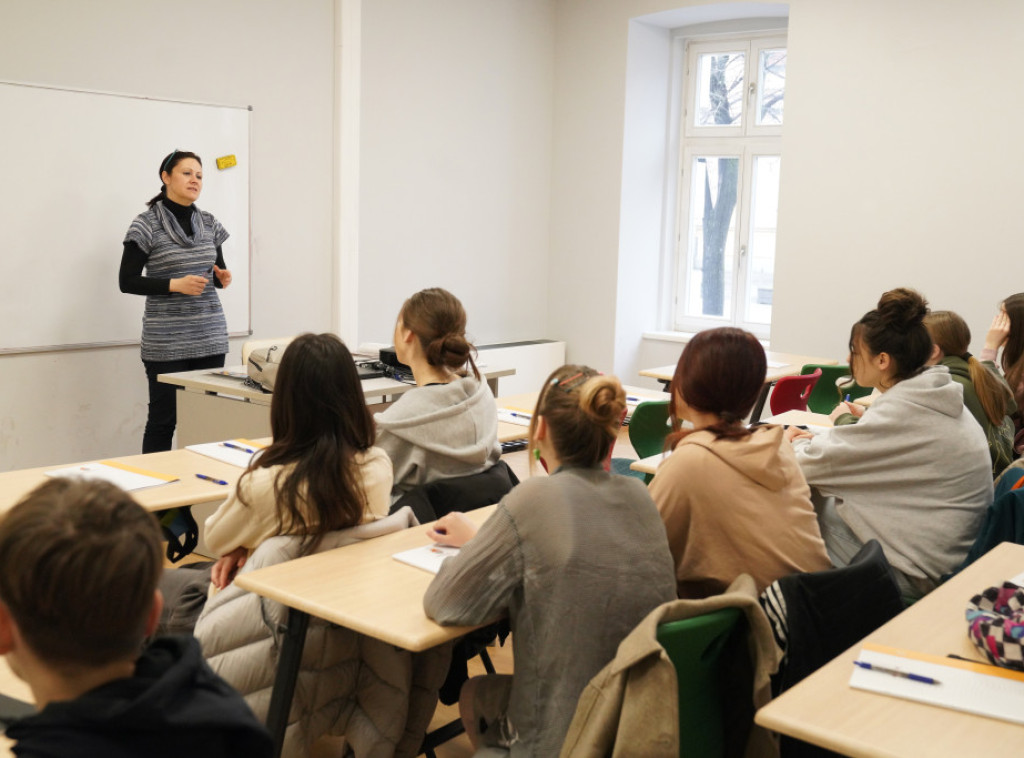
1. mart 21:25
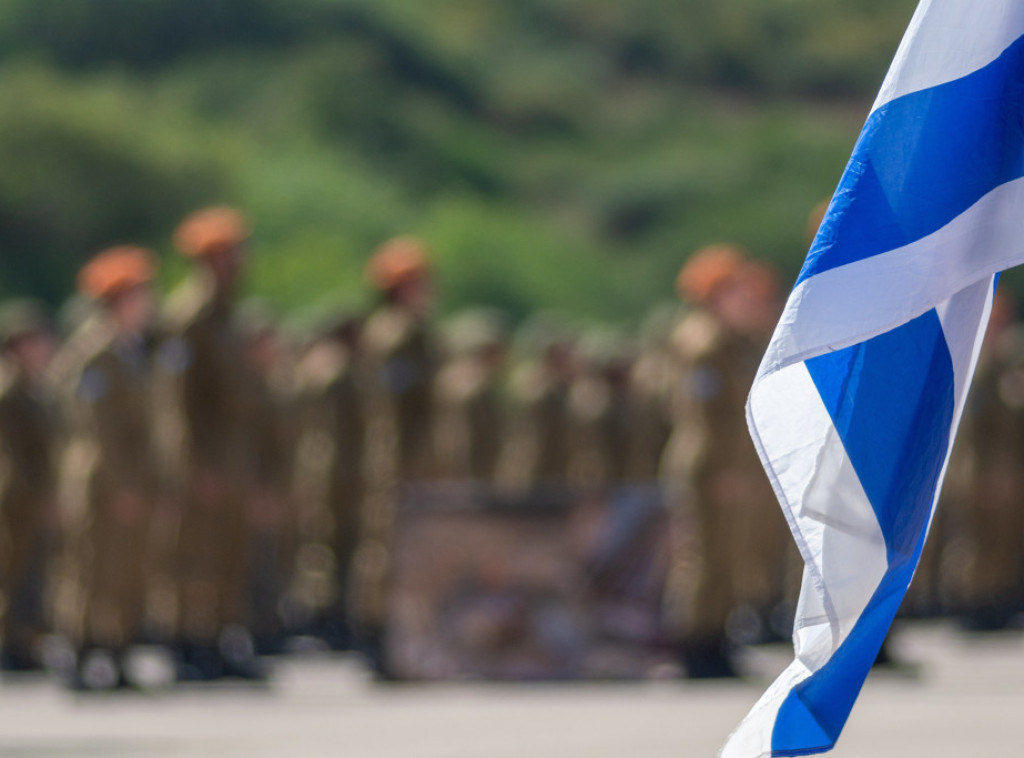
1. mart 17:18
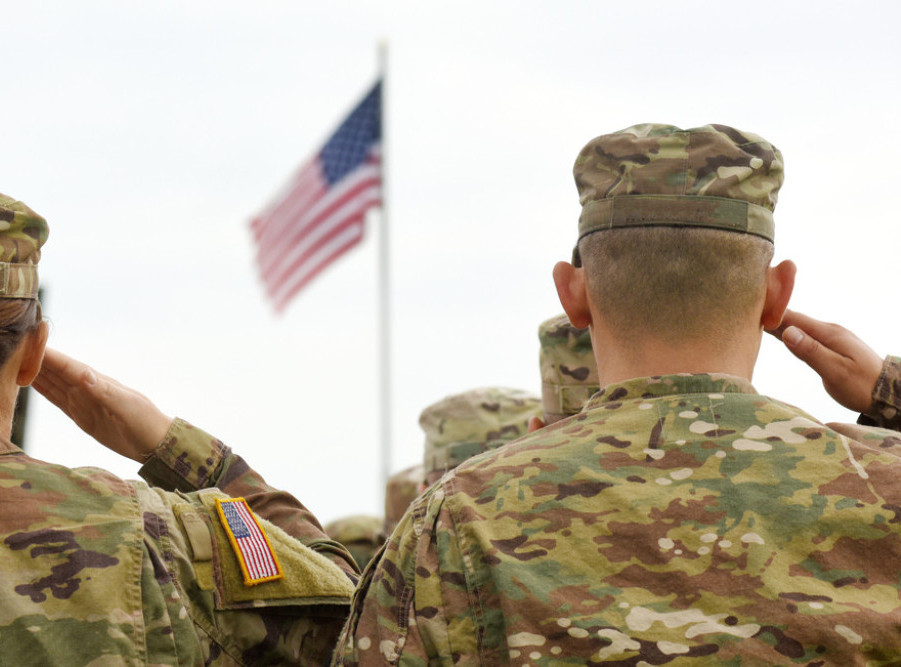
1. mart 17:05
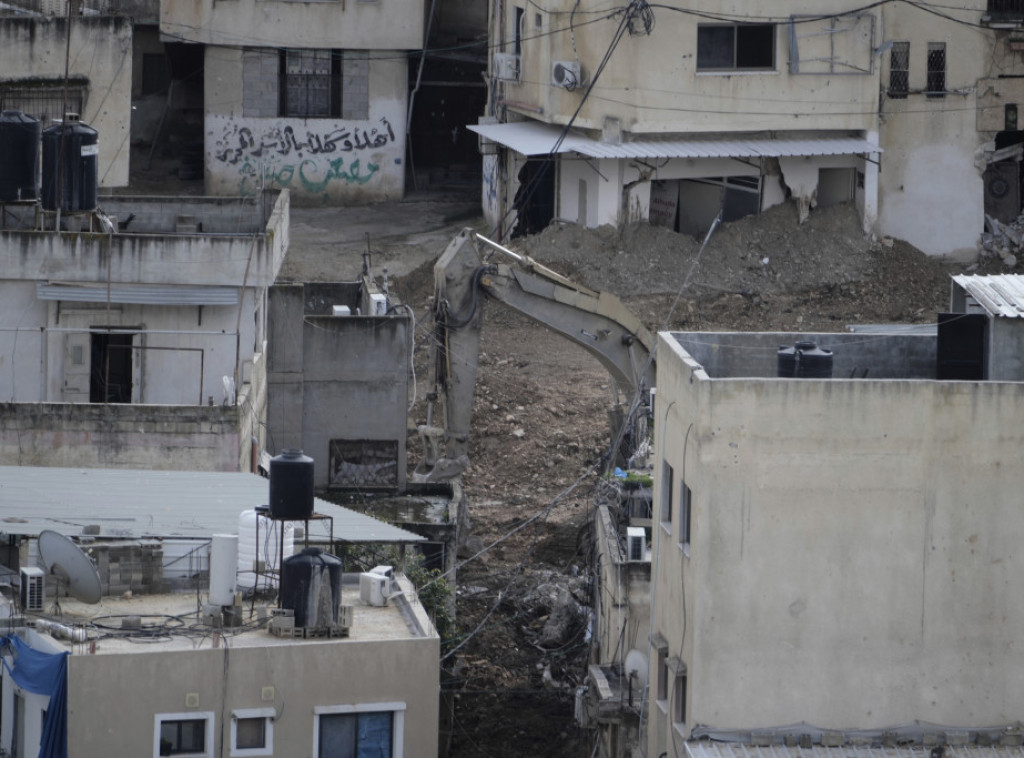
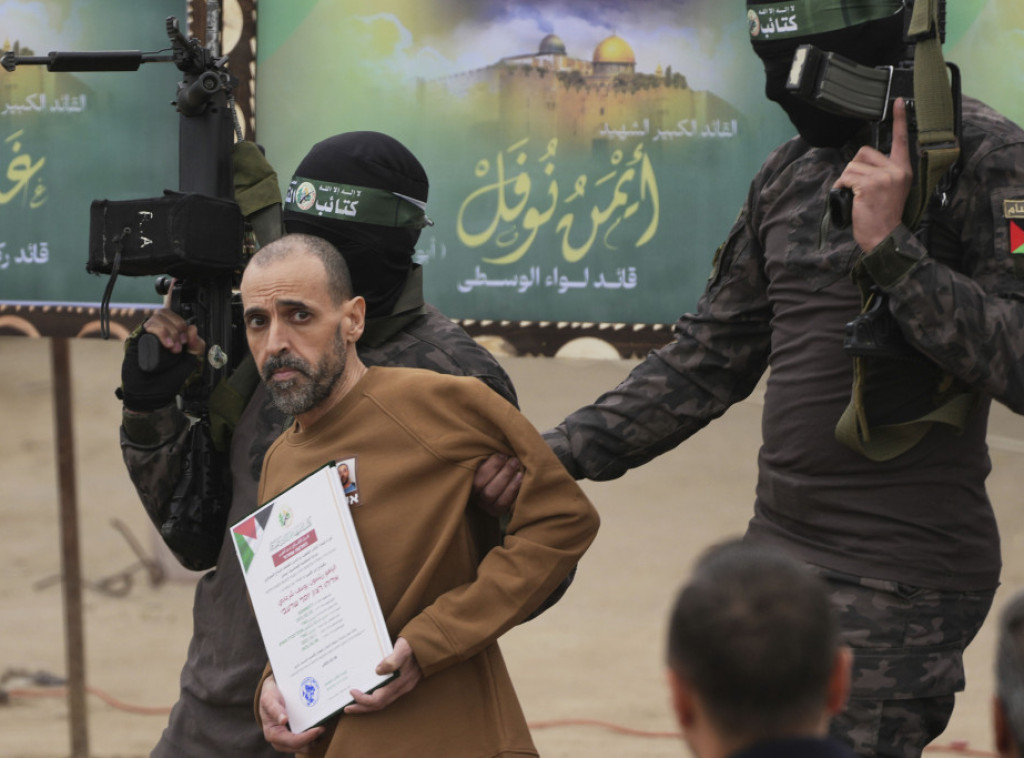
20. novembar 17:11
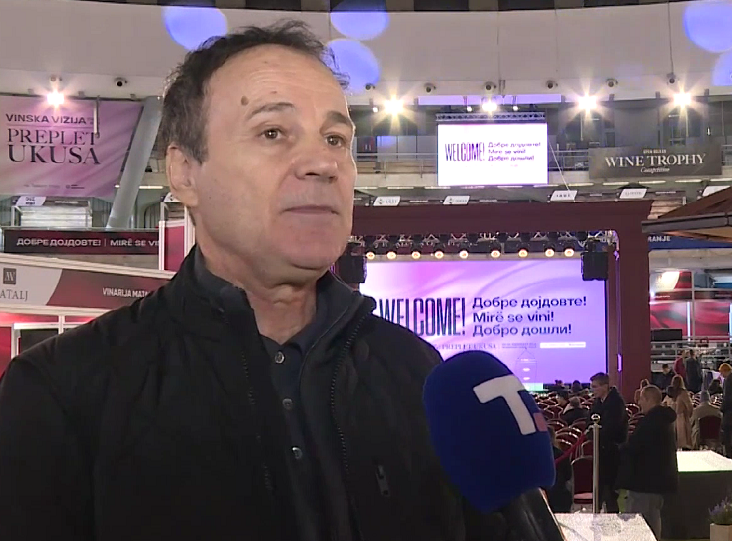
18. novembar 15:04

9. novembar 22:08
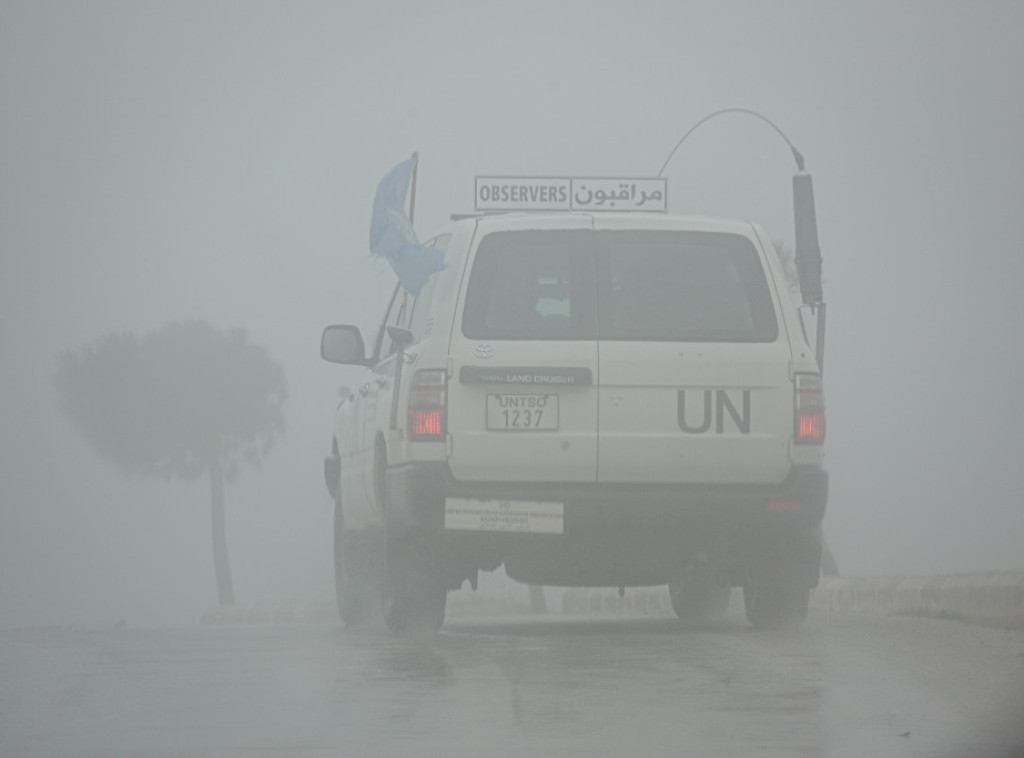
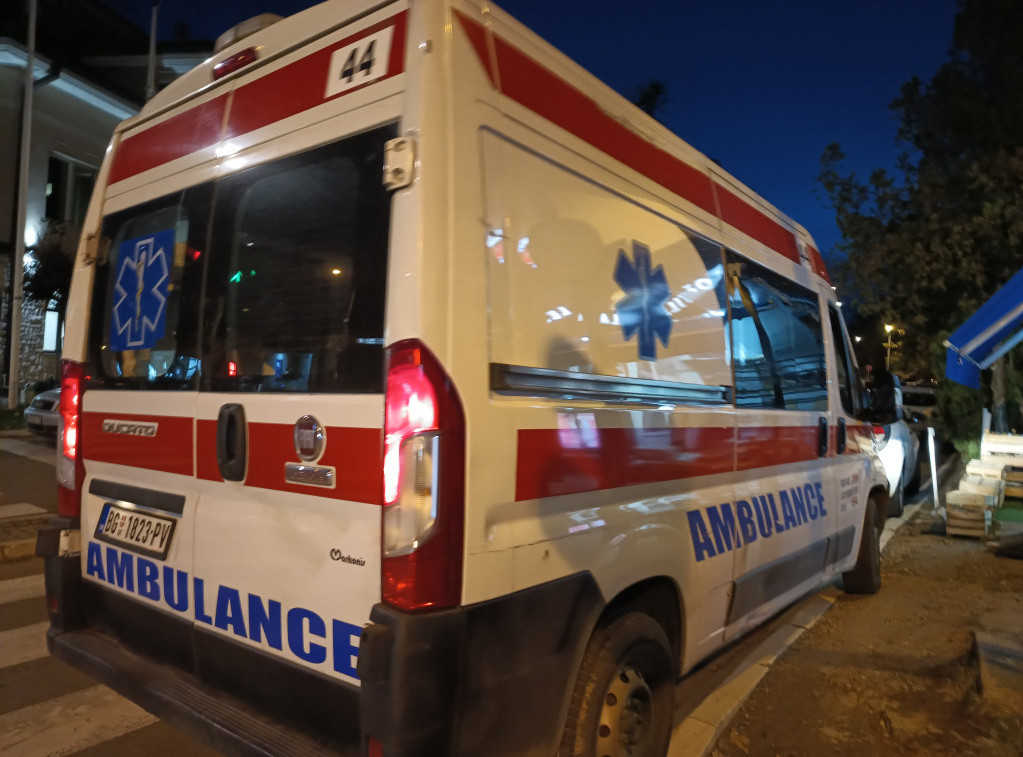
28. februar 19:32
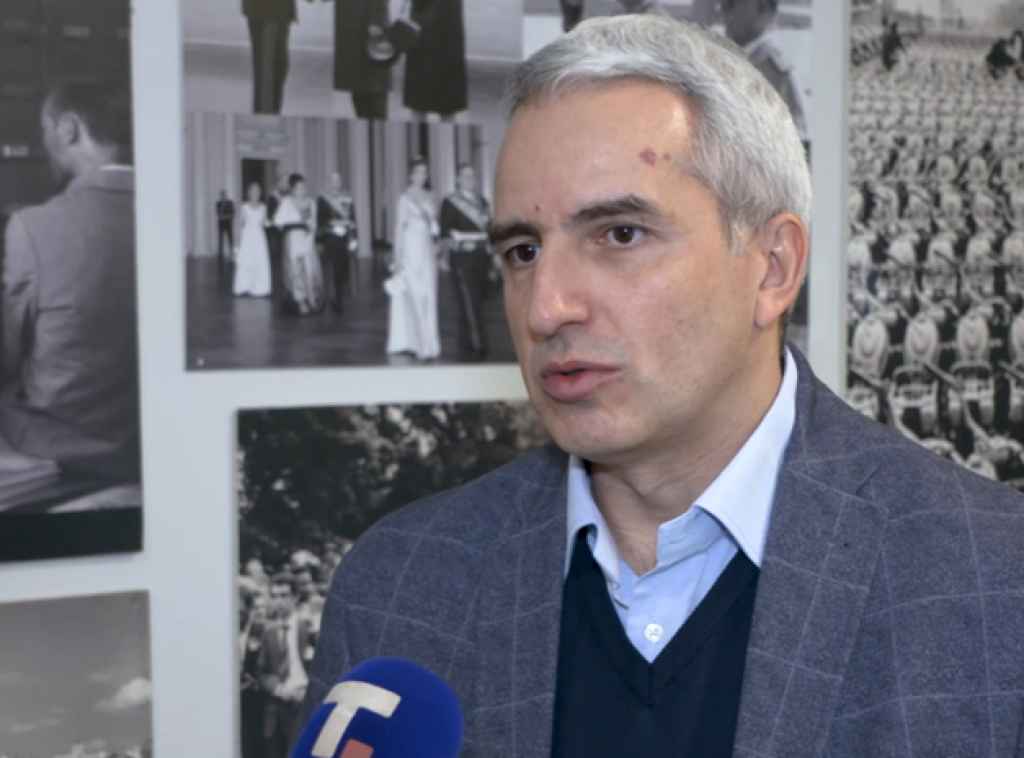
28. februar 12:11
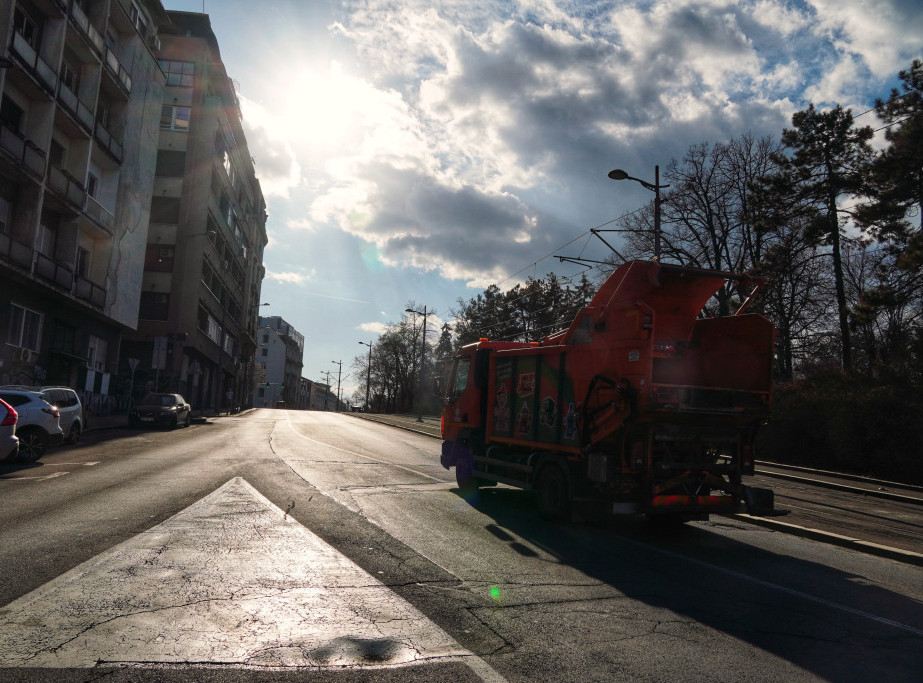
28. februar 10:56
